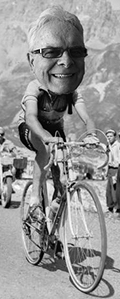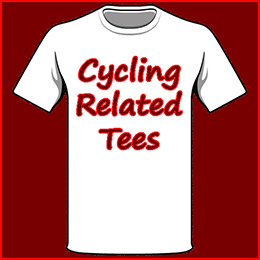War Without Tears
 Mon, June 1, 2020
Mon, June 1, 2020 In the 1970s, just before I left England and moved to the United States, there was a TV reality show called “It’s a knockout.” Towns and cities throughout the UK would put together teams to compete against each other. The games would consist of people dressing up in silly costumes and racing each other over various obstacle courses.
It made for amusing, entertaining viewing with a competitive aspect. I believe the idea started in France, there was a European version called “Jeux sans Frontiers” which translates to “Borderless Games.” In which different countries competed. Singer/songwriter Peter Gabriel wrote a song around the theme, Games Without Frontiers, War Without Tears.”
It occurred to me that the term “War Without Tears” was a concept that could apply to all competitive sports, whether they are in the form of races with a clear individual winner, or team games played on a field or some other marked out area. People compete against each, within a set of agreed rules, and no one gets hurt. At least not intentionally.
Each sport has a governing body that agree on a set rules, and referees or some other officials make sure those rules are enforced during the game. If rules are broken, there are penalties. Just as in real life, the government sets the rules, or laws, and the police and legal system ensure that rules are enforced. If they are broken there are consequences and penalties.
Where the system breaks down, whether in a sport or real life, is when people cheat or break the rules, and the referees turn a blind eye, or show bias towards one side. The governing body then needs to step in and restore order and fairness. Level the playing field, so to speak.
When I got into cycling and cycle racing as a teenager in the early1950s, I joined a cycling club. The club itself had rules, older established members of the club taught me the rules and explained the reasons for them being in place. The rules were there to ensure fairness and everyone’s safety.
There was also something called “Ethics,” or unwritten laws. One did not draft on the back of a group for the entire race, then go to the front and win at the end. This even applied to a club run or training ride. What would be the point? You won the race, but you would be a very unpopular winner.
It was common knowledge at the time that European Professional Cyclists took Amphetamines. Amphetamines were invented in the late 1800s about the time the chain driven bicycle was invented, and with the popularity of Six-Day Races and other extreme endurance events, amphetamines were a natural fit for cycle racing and other professional sports.
However, one has to realize that professional sports are for the entertainment of the spectator, whereas the amateur version of the same sport is solely for the participant. We were only in the sport for our personal satisfaction. Cheating in an amateur race back in the 1950s would have given zero satisfaction, and one would be ostracized if found out. I never heard of amateur cyclists doping during that era.
Today we live in a “Look at me” society, so there is a win at any cost mentality, even where there is no monetary gain. Ethics have completely gone out of the window not only in the sport of cycling, but in the “Game of life” itself. I am so glad I participated during the “Golden Age of Cycling.” It gave me such joy and satisfaction.
I am too old to ride in cycle races now, but I must of course continue to participate in the game of life. Sadly, it becomes less and less fun each day. I thought we agreed on a set of rules, but no one wants to play that way anymore.
Sometimes during English football (Soccer.) games, where poor decisions were made by a game official. The crowd would start singing, “The Referee is a Bastard.” (To the tune of "For he's a jolly good fellow.")
The events of this past week remind me that the referee on the streets is the police, and there is a definite bias against one side. In the real game of life it is no longer “War without Tears,” the war and the tears are all too real.




















Reader Comments (5)
Thank you, Dave.
How do you know the quality of a person you don’t know?
By what they say? By what they do? And at what point in their life do you decide what you think of them?
Because if they live long enough, what may start as high regard could turn to distain. That is being human.
At least with a bicycle, you can buy a really nice one and know it won’t change. But, if you don't know much about bikes, and bought one that turns out to be a loathsome thing, what formed your opinion? Why did it take buying it to find out how unhappy you are? You didn’t have that opinion of the bike before buying it. Or maybe you became a better rider and laugh at yourself for buying what you call a “starter bike”. So maybe it’s not the bike, but you.
There are many happily riding such bikes.
I also enjoyed watching Lance in Tour. It was a fun time, looked forward to it, have fond memories of he and Jan and the Schleck brothers. Am I supposed to now feel guilty with those memories? Am I supposed to think less of bike racing because many dope, because this has been exposed?
Am I supposed to not enjoy any professional sport, because some cheat? Or maybe I am not supposed to look like I know how to ride because some will think I support the cheating pros.
Same with the world of people. Are we supposed to feel guilty because some “cheat” (assign whatever is currently associated with being wrong), or we don’t like our history? Are we, the people, lesser if we don’t?
It would be impossible to keep up with what we are supposed to be, if we live for others. I enjoy my life not because I am supposed to enjoy it, but because I do. I ride not because it is what is expected, but because I enjoy it. I do not ever see questioning myself, my life.
But I will laugh at myself for stopping on the climb to the finish at Acton in 1980, to pick up a dropped water bottle, and losing the race!
Thanks, Dave. A great post.
Well said, Dave.
Thanks Dave for the meaningful post. Mike